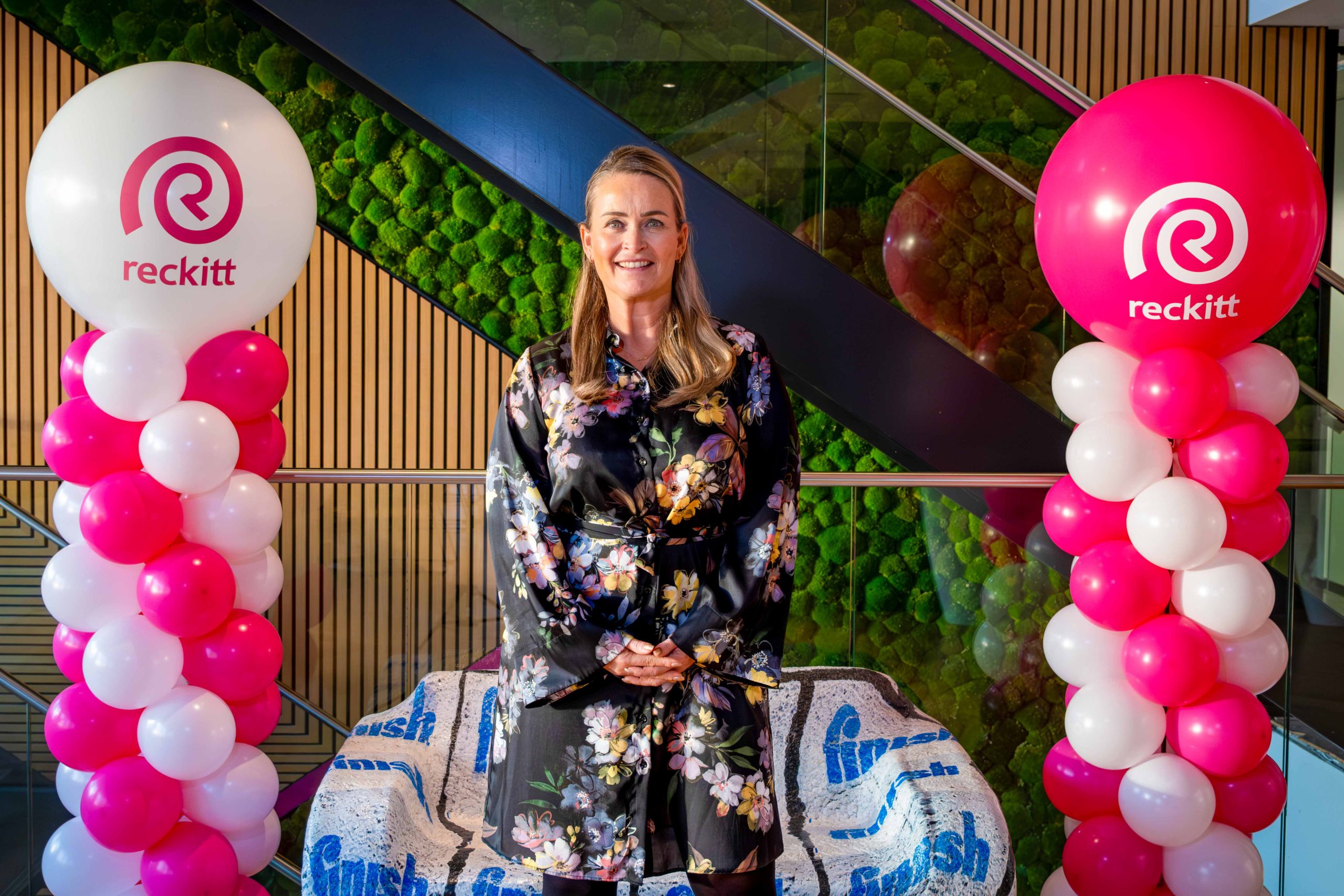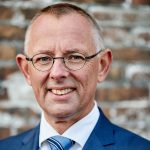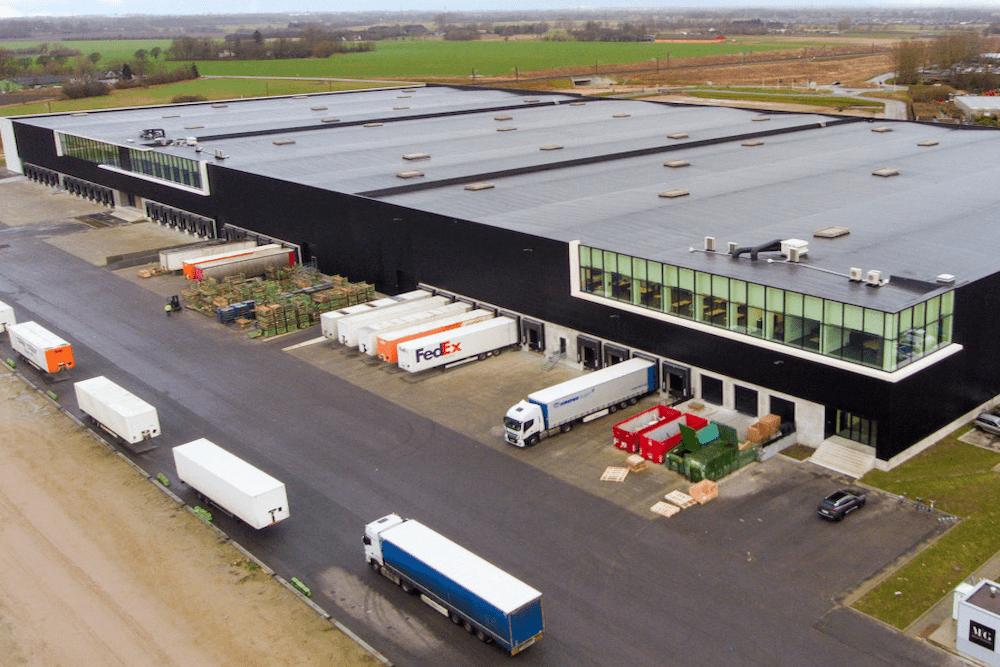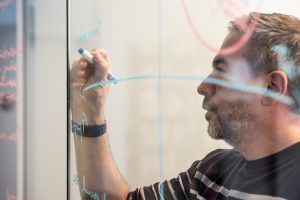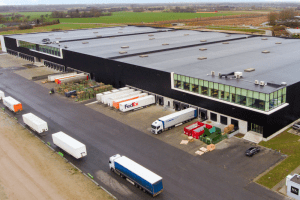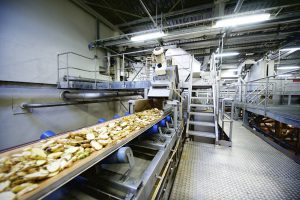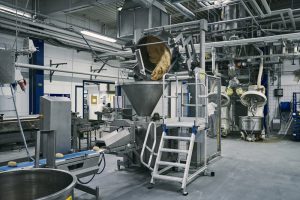Francis Hoefman, a law master, stumbled upon the HR profession by accident and now cannot envision herself in any other field. Her dream of working overseas for a few years has come true. With her inquisitiveness, perseverance, problem-solving abilities, and analytical skills, she has reached the position of Senior Vice President HR at a renowned corporation. In her current role, she is always mindful of striking a balance between adding value to the company and fostering the growth of individuals.
Hoefman was raised as the only child in a diligent middle-class family from Brabant. “I had a wonderful upbringing. I always put in a lot of effort and even had part-time jobs since I was fourteen, while studying law in Maastricht.” Hoefman felt compelled and accountable to make the most of her intelligence. However, it was challenging because every penny counted. “Perhaps that’s why I always stayed at home. It was a sense of responsibility and also because I worked on the side to support myself through college.”
Did you first start working as a lawyer?
“Yes, I actually began dabbling in it during my education. It all started when I helped out a friend who had been let go from her job and ended up impressing her employer’s lawyer. They offered me a job, which was located in Barendrecht. However, I must admit that I found the whole experience a bit disappointing. It was very focused on acquiring new clients and billing by the hour. I felt like I had to constantly justify everything I did, which took away from finding the best solution for each situation.
During my internship at a law firm in Maastricht, I realised even more that I wasn’t interested in the hourly billing and acquisition aspect of the job. After completing my studies, I joined VHP Philips, which was a trade organisation within Philips for senior staff. The best part about working there was the freedom I had right from the beginning to negotiate employment terms harmonisation. My role had an HR background and spanned across the entire organisation. It was actually a happy accident that I ended up there, but it appealed to me because of my background in corporate and labor law.”
What made you stay in HR?
“As it goes, you’re young and it seems like a good fit. And then it turns out it’s really quite top notch. I learned at VHP Philips especially at a young age to be among more experienced people, mostly 50-plus men, . A traditional environment but very intellectually driven, because they were often inventors or engineers. Of course Philips was already partly in my blood. My grandfather had always worked at Philips. On my mother’s side it was also really a Philips family. Yes, that blue blood is already in my blood. I really loved it. I was received there as a labor relations consultant and later became a senior labor relations consultant.
When my daughter was born, I was offered the opportunity to become the director of the association. It was a big decision for me, as I was still in my twenties and directors in my field were usually in their forties or older. However, after a year and a half in the role, I realised that if I stayed, I might still be there in five years. So, I decided to explore other options, including a potential switch to a more business-oriented job. That’s when I had an interview at Mars in Veghel, and it’s an experience I’ll never forget. During the interview, the HR director, Anton de Kok, mentioned that they typically hire people for long-term positions and might come up with a job that I might question. But he advised me not to focus on that. Despite this, I started my journey there as the Compensation and Benefits Director. However, after only 1.5 years, I was presented with the opportunity to join the supply chain team, which was a completely different role from HR. I thought it was fantastic because I would be working with around 750 people. The management gave me a lot of freedom and allowed me to make my mark. I was also heavily involved in international projects, which was incredibly fulfilling.”
Is having a specialty in HR important?
“As the HR Business Partner for the supply chain organisation at Mars, I was surrounded by the factory and the entire team. In my experience in HR, I’ve learned that it’s important to have a background in various specialties such as talent, compensation and benefits, and preferably a role in the supply chain as well. Christian Engelbert of Mars always emphasised the need to understand every aspect of the business, from procurement to production to sales. This resonated with me and solidified my passion for HR. Working at Mars was a valuable learning experience, and I found the ecosystem surrounding HR to be incredibly fascinating. However, after a few years, I felt the urge to explore opportunities beyond borders. I had always dreamt of working abroad, and there were discussions about a potential move to the UK with Mars. However, when my mother had a heart attack, I became uncertain about pursuing this opportunity. Ultimately, I made the decision to join Heinz, although it felt less international. Then, in late 2012, Reckitt reached out to me with an exciting opportunity abroad. I was open to an interview because I believed I could truly make a difference and add value in this changing company. I’ve never been the type to settle for a stable, established business.”
What was your assignment at Reckitt?
“At Reckitt, I was truly impressed by the leadership’s clear vision that focused not only on the ‘what’ but also on the ‘how’. It made me realise that I could make a significant impact in the HR field. This refreshing approach was further reinforced when I attended a leadership conference shortly after joining the company. The CEO took the stage and reiterated exactly what he had discussed with me during the interview. It wasn’t just a tactic to attract me, but rather a genuine commitment to the company’s values. As a company grows, it becomes challenging for a CEO to travel the world and dictate how things should be done. Reckitt understood this and recognized the need for a different approach. They were known for their quick decision-making in the fast-moving consumer goods industry, but they also acknowledged the importance of prioritising their people.”
Did that apply both externally and internally?
“Certainly, the inspiration was lacking. We began to not only focus on leaders who achieved remarkable results, but also started to prioritise talent and leadership development. How we treat our employees and how that impacts our culture became a key consideration. This shift completely transformed the situation. As a result, many people decided to leave the company during 2013-2014, which was quite a turnaround. I then spent three years in North Africa, Middle East, Turkey, Pakistan, and Israel. During this time, I built a new team, established a new operating model, and approached talent development from a fresh perspective. When I eventually left, there was a noticeable change in the atmosphere. We further enhanced our culture by promoting inclusion. Now, there is a distinct and positive atmosphere, and the behaviour within the company has also changed.”
Are you frequently traveling now that you have global HR responsibilities?
“Since 2018, I have been in charge of the HR department for the Hygiene business unit. In 2023, I took on additional responsibility for the health business unit. We also have a Nutrition business unit, which is led by one of my colleagues. My team consists of ten people, and we have divided our work into different regions. Altogether, we have around 550 HR professionals. Our HR transformation journey began a year ago, and as part of that, we established large shared service centers in India, Poland, and Mexico. These centers have expanded our HR organization. Our goal is to make HR more efficient and strategic. I estimate that I spend about 30% of my time traveling, with varying levels of intensity. Sometimes I am in India for a week, other times in Shanghai or elsewhere. However, there are also periods when I do not travel for two weeks.”
What are the most important HR topics right now?
“There is one important point that I call Holistic HR. That means HR has to be able to really look much more at insights based on data, but also based on what’s going on in the world macro-economically and politically. As well as looking at what competitors are doing. Then to determine what hotspots there are in the company strategically. Where are the pain points? That’s what HR should be more and more about. And then then look at how you can make an overlay to workforce planning and the effectiveness of your talent development, for example.” And ultimately you move from a holistic approach to more value creation; really adding value (and then not just for the HR agenda)
Are those hot spots more about retention or more about the skills side?
“Actually, both situations can be quite distinct. For instance, in America, I might encounter a challenge with capabilities, whereas in England, it could be more about attracting the right talent. On the other hand, in the Middle East, the main concern might be retaining employees. Additionally, we are closely monitoring the impact of Generative AI on the workforce and identifying roles that may become obsolete. We are already working on strategies to address this issue. The question then becomes, what opportunities will arise to replace these jobs? Moreover, how can we help individuals transition into new roles and make them employable in different ways? As HR professionals, we don’t tackle these challenges alone; we collaborate with thought leaders in the field who provide valuable insights. It’s important not to assume we have all the answers, as that can be risky. We must continue engaging in discussions with one another, as well as with specialists and internal board members. An inward focus can lead us astray from the bigger picture.”
How do you maintain your mental acuity?
“That’s quite a thing. It’s really important to prioritise and allocate time for it, in my opinion. I actually schedule it in my calendar as dedicated time for reflection. I also make sure to read interesting articles that I come across, like the ones left in my inbox. The same goes for spending time with my family. Even though work is always on my mind, I find it difficult to completely switch off. Work is a big part of my life and I genuinely enjoy what I do. Interacting with people and being involved in my work gives me energy. However, I’ve made a conscious decision not to work on weekends anymore, and in the evenings, I try not to send emails that might trigger immediate action from my team. I understand that I serve as a role model and that comes with responsibilities. In my spare time, I also coach and mentor many young women outside of Reckitt, hoping to make a broader contribution. Another valuable lesson I learned was when a colleague once taught me to ask myself: Does this need to be said? Does this need to be said by me? Does this need to be said by me now? It’s like a compass that guides me.”
What are you most proud of?
“I’ve always found my greatest source of pride in the people I collaborate with. Throughout my career, regardless of the location or position, it has always been the individuals I work alongside who have made the experience truly meaningful. Whether it’s the colleagues on my own team or the members of my management team, they have all played a significant role. When it comes to addressing challenges, I find satisfaction in striking a harmonious balance between creating value for the company and fostering personal growth for the individuals involved. This way, we can achieve the best of both worlds, and it’s truly a wonderful feeling.”
Francis Hoefman
She resides in Amsterdam with her husband and daughter, happily married.
Leisure
“I enjoy staying active by exercising. Whether it’s hitting the gym with my husband or working out outdoors with my personal trainer, I always find it invigorating. Additionally, I love spending quality time with my family and friends. We often bond over shared activities like dining out, cooking together, working out as a group, going for leisurely walks in nature, watching movies, going on vacations, or even taking weekend getaways.”
Career
2013 – Senior Vice President HR Hygiene and Health, previously, the HR director oversaw multiple regions across the globe.
2001 – 2013 HR Director Benelux, HJ Heinz
2006 – 2011 HR Business Partner, Mars
2000 – 2006 Director, VHPPhilips
Education
Certified Coach from Henley Business School
2002 – 2003 Post Master Labour Law, Grotius Academie
1994 – 2000 Rechten, Maastricht University
